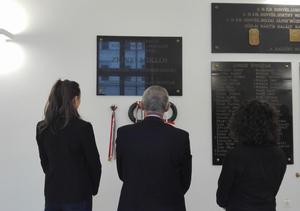On 18 November 1664, Zrínyi died in Kursanecz (today Kuršanec, Croatia) who was the seventh to carry the name of Miklós in his family. He was a leading military and political figure of his time and also a forerunner of Croatian and Hungarian political thinking and military science. He was killed in a hunting accident by a wounded wild boar, however even to this day, rumors persist that he was killed at the order of the Habsburg Court.
His family left a legacy to the young Miklós, born on 3 May 1620 that represented both burden and glory at the same time. His ancestors gave their blood on the battlefield at Mohács, his great-grandfather was involved in the Siege of Szigetvár. Together with his brother, he became orphan at a very young age, thus he was educated by Péter Pázmány. They were soon obliged to take care of themselves because the Turks continuously threatened their lands. As a family heritage, he spoke several languages including Hungarian, Croatian, Italian and he later learned Latin as well. Additionally, Zrínyi also understood German and Turkish.
Between 1642 and 1645 he was involved in the Thirty Year’s War: he equipped an army corps at his own expense, acted against the ennemy troops in Moravia and fought against the army of George Rákóczi I of Transylvania. In this campaign the rebels were defeated in September 1644, suffering around 3000 losses.
His name was praised throughout Europe in February 1664 when he set out to destroy the strongly fortified Suleiman Bridge (in Hungarian: Eszék bridge). In June, he sacrificed his beloved castle, Novi Zrin (in Hungarian: Zrínyi-Újvár) to hold back the Turkish army and later in November he lost his life aforementioned in the accident.
His memory had not fade over the years, we remember him as excellent military leader, poet and stateman, a real role model!
